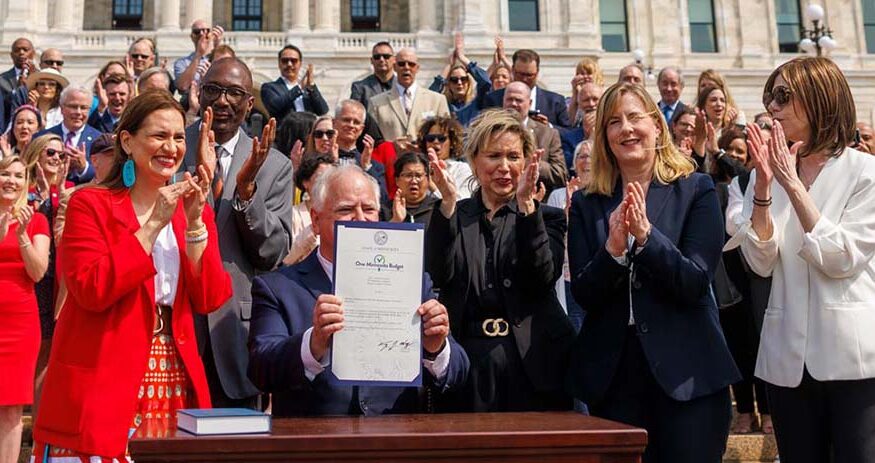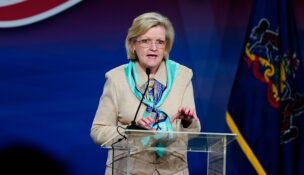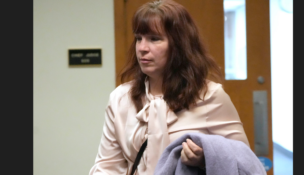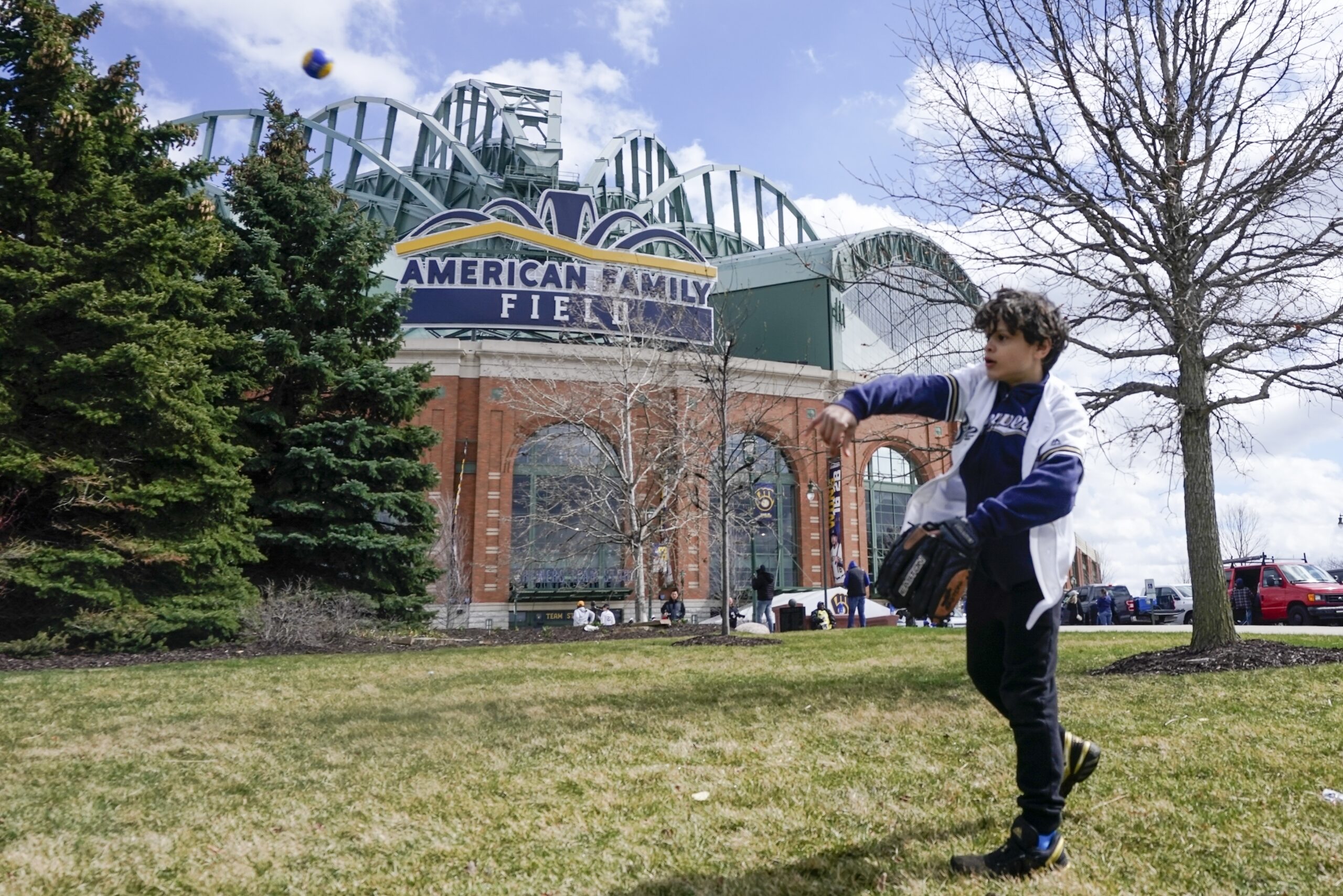State files counterclaim in Christian colleges’ suit
By: Laura Brown//November 20, 2023//
Christian colleges that are suing Gov. Tim Walz and the Minnesota Department of Education (MDE) were back in federal court on Nov. 6. The MDE has filed a counterclaim against the colleges, arguing that their statement-of-faith requirements make them ineligible to participate in a state-sponsored program in which high school students earn college credits.
On May 24, Christian parents and schools filed a lawsuit against Walz and the MDE. The lawsuit was directed at an amendment to Minnesota law that affects certain colleges offering free on-campus college credits to high school students.
The Minnesota’s Postsecondary Enrollment Options program (PSEO), established in 1985, gives high school students the ability to get free access to college credits at a public or private Minnesota school of their choice. In order to participate, high school students must apply directly to one of the eligible intuitions. Students can then earn high school and college credits simultaneously without cost. Typically, the postsecondary institution provides the course materials, including textbooks, and the MDE reimburses the institution for those costs, which includes covering a certain percentage of tuition per credit hour.
For nearly 40 years, students have been able to select a college of their choice. In the past, both secular and religious schools have historically qualified as “eligible institutions” in terms of the PSEO. However, a provision in the most recent two-year education budget changed that. The language reads:
“An eligible institution must not require a faith statement from a secondary student seeking to enroll in a postsecondary course under this section during the application process or base any part of the admissions decision on a student’s race, creed, ethnicity, disability, gender, or sexual orientation or religious beliefs or affiliations.”
Two Christian families selected colleges for their students to attend to receive college credits through the PSEO program. However, those colleges are not eligible for the PSEO program given the new amendment because of their requirement of a statement of faith from students. While those students can select from another college, they cannot, under the new amendment, pick the college of their choice.
In May, parents and two Christian colleges — Northwestern-St. Paul and Crown College — filed suit, arguing that the new legislation that was passed violates the Free Exercise Clause and Establishment Clause of the First Amendment, as well as free-speech violations and equal protection violations. Colleges such as Northwestern-St. Paul and Crown ask all on-campus students to sign statements of faith. Becket Fund for Religious Liberty, a nonprofit, public-interest legal and education institute that sets forth to protect free expression of all faiths, is representing the plaintiffs.
“We pray that the court will continue to allow every student in Minnesota to use PSEO funds at the school that best meets their needs and matches their values,” stated Andrew Denton, president of Crown College.
“Northwestern strives to offer a Christ-centered education to every student who joins our campus community to equip them to serve effectively in their professions and give leadership in the home, community, church, and world,” declared Corbin Hoornbeek, president of University of Northwestern-St. Paul.
Plaintiffs allege in the lawsuit that this language was intentionally crafted to target certain religious institutions. “The legislative history confirms that amendment’s point was to single out these religious institutions,” the complaint reads. The complaint included comments from floor debate, during which legislators expressed disapproval with faith statements and suggested that other institutions across the country were able to remain true to their faith without requiring students to sign a statement of faith.
On June 14, the parties stipulated got a preliminary injunction, where defendants were enjoined during litigation from enforcing the act and to let the 2022 version of the statute remain in full force.
However, the Department of Education filed a counterclaim against Northwestern and Crown, claiming that the schools’ acceptance of the PSEO students subjects them to the same constitutional requirements as the government. The schools are asking the court to dismiss the counterclaim.
“Private schools don’t become public schools just because they accept students who receive state funds, and to argue that they do is a transparent attempt to control Minnesotans’ religious beliefs and practices,” stated Diana Thomson, senior counsel at the Becket Fund.
Kevin Burns, MDE spokesperson, said, “MDE works with our legal counsel to develop legal strategies and have no further comment at this time.”
Thomson is concerned about larger implications of finding that the colleges are state actors. “That means that, every private school that participates in a government program, not just the PSEO program, would be subject to the liability of government actors. It has broader implications,” said Thomson.
Legal News
- Wisconsin lawyers file University of Wisconsin public records request seeking answers to protests
- Wisconsin Supreme Court issues orders amending Supreme Court rules and Wis. Stats.
- EXCLUSIVE: Former Milwaukee ‘big law’ partner attacks news media for bias against Trump
- Former Milwaukee election official fined for obtaining fake absentee ballots
- Contract dispute prevents airing of 15 regional sports networks, impacts Brewers
- Wis. middle school focuses on recovery as authorities investigate shooting
- Gov. Evers seeks applicants for Sheboygan and Green County Sheriffs
- North Carolina man who harbored Nazi memorabilia and attacked Black and Latino men sentenced to 41 months
- Nation grieves with families of officers killed in NC
- Amended complaint filed in federal court against State Bar of Wisconsin seeks punitive damages
- United Healthcare suit against cancer drug distributor time-barred
- Trump’s Wisconsin visit warns of jail time if he violates a trial gag order
WLJ People
- Power 30 Personal Injury Attorneys – Russell Nicolet
- Power 30 Personal Injury Attorneys – Benjamin Nicolet
- Power 30 Personal Injury Attorneys – Dustin T. Woehl
- Power 30 Personal Injury Attorneys – Katherine Metzger
- Power 30 Personal Injury Attorneys – Joseph Ryan
- Power 30 Personal Injury Attorneys – James M. Ryan
- Power 30 Personal Injury Attorneys – Dana Wachs
- Power 30 Personal Injury Attorneys – Mark L. Thomsen
- Power 30 Personal Injury Attorneys – Matthew Lein
- Power 30 Personal Injury Attorneys – Jeffrey A. Pitman
- Power 30 Personal Injury Attorneys – William Pemberton
- Power 30 Personal Injury Attorneys – Howard S. Sicula












